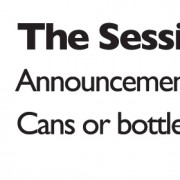MicroBrewr 067: How to find investors for a brewery
Podcast: Play in new window | Download | Embed
Subscribe: RSS
UPDATE: Mistakes and clarifications have been corrected, per Jenny Kassan.
You planned the brewery of your dreams. You researched the market and you know it will be profitable. But you don’t have a million dollars under your pillow to start it. Now how to find investors for a brewery?
Jenny Kassan, an attorney and consultant in Oakland, California, graduated from Yale law and worked for 11 years helping to build really small businesses. For the last 9 years she worked in securities law, “the very highly regulated world of raising money for a business.” Now she does consulting and teaches classes on how to raise funds for businesses.
As soon as you ask someone to invest in your brewery, you’re conducting a “security offering,” which is regulated by the U.S. Securities and Exchange Commission (SEC), as well as the securities regulators in each state where you offer the investment.
“Even if the regulators don’t catch you and fine you, you have created this liability for your company,” cautions Jenny. “If, for example, one of your investors was unhappy later and wanted their money back because you couldn’t afford to pay them or something, they could complain. And then it would be uncovered that you never did comply with those laws. And they would have a pretty good case against you.”
First, some background info.
There are generally 2 kinds of investments:
- Equity – ownership in the company
- Debt (loan) – must be paid back
There are 2 kinds of investors:
- Accredited investor – A person with a net worth of $1 million (excluding his or her primary residence) or annual income of $200,000, or an entity with $5 million in assets.
- Unaccredited investor
If you offer a security only to accredited investors, the legal compliance hurdles are generally fewer. However, there are legal ways to include both kinds of investors in your offering.
Until you have ensured that your offering is legally compliant, don’t solicit investors directly. Also don’t advertise your offering publicly unless you have done the legal compliance that allows advertising. At this point, don’t solicit investors directly, just ask general questions.
Anything other than one-on-one communication is considered advertising, which is regulated by the SEC.
“Have some informal conversations with potential investors,” Jenny instructs, “and say, ‘I’m thinking about raising some money—I’m not doing it now, but I’m thinking about.’”
Then ask general “if scenarios.” For example, “If I were to offer an investment opportunity in my brewery:”
- Would you be more interested in equity or debt?
- How would you expect to get paid back?
- How long would you be willing to have your money tied up?
- What kind of perks would you want?
The laws are flexible enough that you can design your investment agreement in lots of different ways.
“There’s a lot of kinds of equity that can look a lot like debt,” says Jenny. “There’s also debt that can look more like equity, where the payment that you make to your investor can vary based on the success of the company.”
After both parties come to agreement, they each need to talk with an attorney to make sure their desired agreement is legally compliant.
Most investments require some kinds of securities filing at the state or federal level or both.
After you figure what you’re willing to offer, you might be ready to conduct an offering. Talk to an attorney to help you do the necessary filings.
Direct Public Offerings
If you want to do a Direct Public Offering which allows you to do public advertising and include unlimited number of both accredited and unaccredited investors, you may need to file a Form D with the SEC and register with your state regulators. The filing requires attachments such as:
- “Prospectus”
- Risks
- Business Plan
- Description of management team and qualifications
- Anything investors would need to help them make a decision
- Sample security to be offered
- Organizational documents for the company
- etc.
The filing fee can range from a few hundred to a couple thousand dollars. Legal fees usually range from $15,000 – $30,000. It sounds like a lot, but if you’re opening a million dollar brewery, it’s a worthy 3% of the overall budget.
“I think it’s possible to do without an attorney,” speculates Jenny. “It’s certainly not the best strategy. It may take you twice as long and it may be a nightmare, but you should be able to get through the process.”
If you go at it without an attorney, remember that the regulators are there to help. So work with them, respond to all of their questions, and make their requested changes.
Once you get approval from the regulators for your Direct Public Offering, now find money!
Advertise your offering:
- Talk to media
- Get in the newspaper
- Put it on your website
- Send mass emails
- Host parties and events
- “Set up a million meetings”
Have your investor packet ready for when people want to know more.
“The best thing to think about,” says Jenny, “is to put yourself in their shoes and ask yourself, ‘What is everything I would want to know if I were them, before making a decision?’”
Include anything to help them make a decision, even the risks.
“If they find out later that you didn’t disclose something that was material to their decision,” cautions Jenny, “they could sue you and say you misrepresented what the opportunity was.”
Vet your investors
Another important thing is to make sure each investor is a good fit.
“You don’t want to accept the first investor that says ‘yes,’” cautions Jenny.
Find investors with whom you get along, and with whom your values and vision for the business align.
“When you are bringing in a fairly large investor,” says Jenny, “they may have a pretty big role that they are playing in your life for the next 10 years.”
And maybe we should saying something like… Of course this is lot legal advice. The laws are highly complex and vary from state to state. You need to speak to an attorney about your specific situation.
“You really have to vet your investors in the same way that they’re vetting you.” [Tweet This]
Listener question:
If you could ask one question to every brewer or brewery owner, what would you ask? Let me know.
Book recommendation:
- The Art of Asking: How I Learned to Stop Worrying and Let People Help by Amanda Palmer.
Check out the entire list of recommended books, click here.
An upcoming beer style:
Cider
Other resources:
- Is a Country Club Membership a Security?, June Lin, Primerus.
- Amanda’s Million, Yancy Strickler, The Kickstarter Blog, June 4, 2012.
- Amanda Palmer: The art of asking, TED, February 2013.
- Kiva, loans that change lives.
- Fast Answers, Form D, U.S. Securities and Exchange Commission.
- Securities regulators for each state, North American Securities Administrators Association.
- MicroBrewr 063: A hundred-page business plan and barely enough money, MicroBrewr, May 5, 2015.
- MicroBrewr 064: How to write a business plan for a brewery, MicroBrewr, May 12, 2015.
- MicroBrewr 037: A forty-year career at the epicenter of craft beer, MicroBrewr, November 25, 2014.
You can reach Jenny Kassan and her legal work at:
Sponsors:
Download a free audiobook.
Support MicroBrewr
Help keep MicroBrewr on the air. CLICK HERE for ways you can help.















I’ve been listening to your podcasts for a long time and this has been my favorite episode. I was just recently trying to dig up information on this topic but didn’t even know where to start. We are actually very close to opening our doors with almost 100% self funding but we hope future growth is right around the corner and you just gave me a ton of info to start preparing for the future. Thank you and keep doing what you do!
Thanks for the kind words, Tori! I’m glad this whole endeavor is helpful for you. Maybe the episode on SBA loans will be helpful, too? https://microbrewr.com/how-to-get-SBA-loan-for-startup-brewery/
This was also my favorite episode for a while. You probably just saved everyone listening about $5,000 in legal fees since we now know the right questions to ask our Attorney. I like your comments at the end of the episode about focusing on all the business skills you need to run a brewery. Keep driving that point home to everyone. My wife and I are the business and financial side of the partnership and there is a lot to know to set up and keep the business compliant.
A future topic of funding could be the ROBS, Roll Over for Business Startup. Since many potential brewery owners currently have some sort of corporate job, they probably have a 401K. The ROBS allows you to roll over this retirement fund into their new corporation and use the money to startup and run the business. Two big issues though, you must quit your job before doing this and you can’t pay yourself a salary until after the brewery opens. So with the TTB wait time you may be without a paycheck for 4 months.
A HELOC, home equity line of credit, is also a great way to get funds. If you own a home and have less than 80% loan to value, you can get a HELOC on the equity. The SBA probably won’t give you a startup loan without home equity so it’s better to just use the equity directly for a much lower interest rate.
Jason, thanks for the amazing words! I am so glad to hear that the podcast is helping and providing great value. Mind if I use that in a testimonial somewhere? 😉
And thanks for the great suggestions for other sources of funding! Thats sounds super helpful. Between the SBA loan, private investors, ROBS, and HELOC, people have some pretty good options to fund their future brewery.
Do you have any leads either for people who can tell use more about ROBS or HELOC, or for people who have funded their brewery this way?